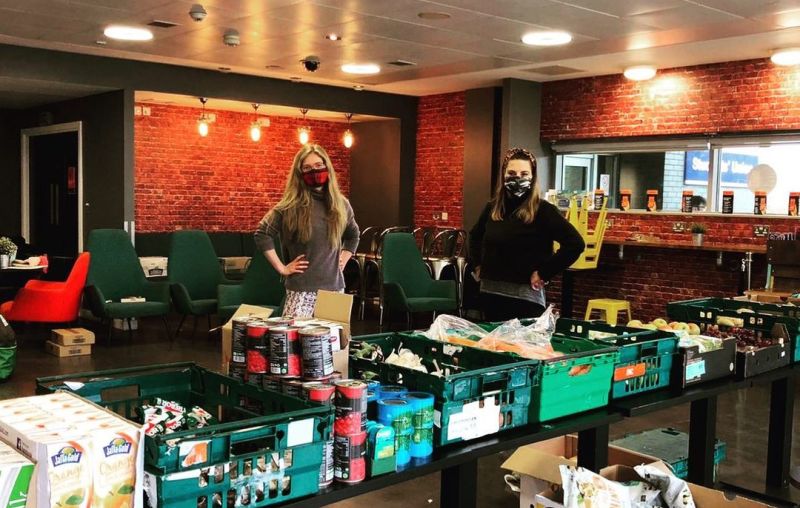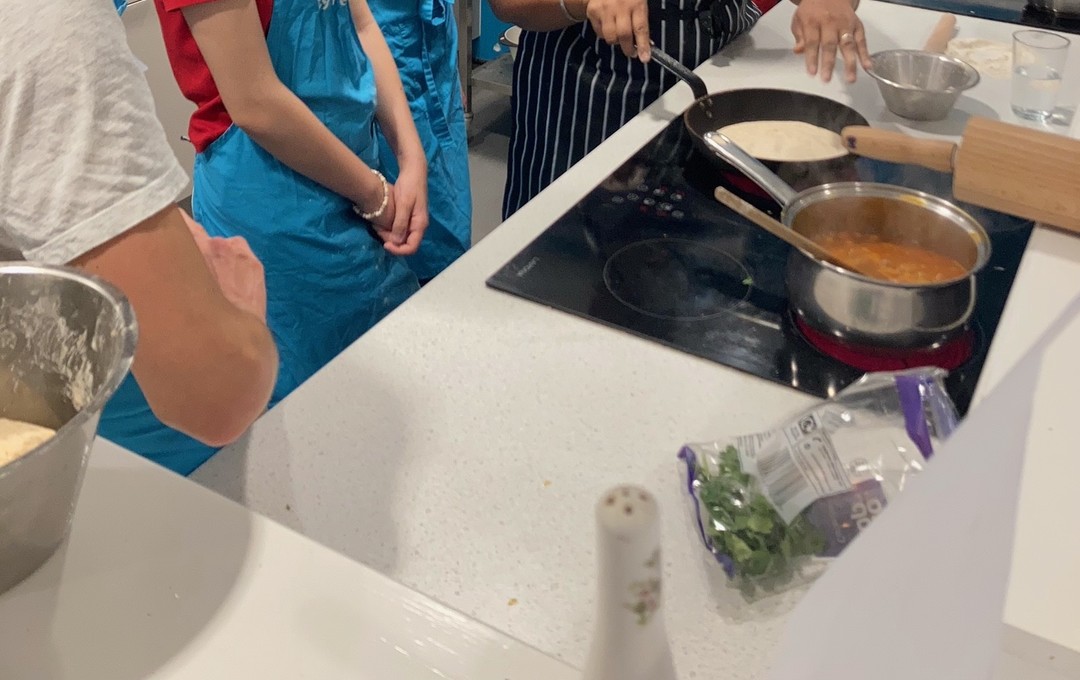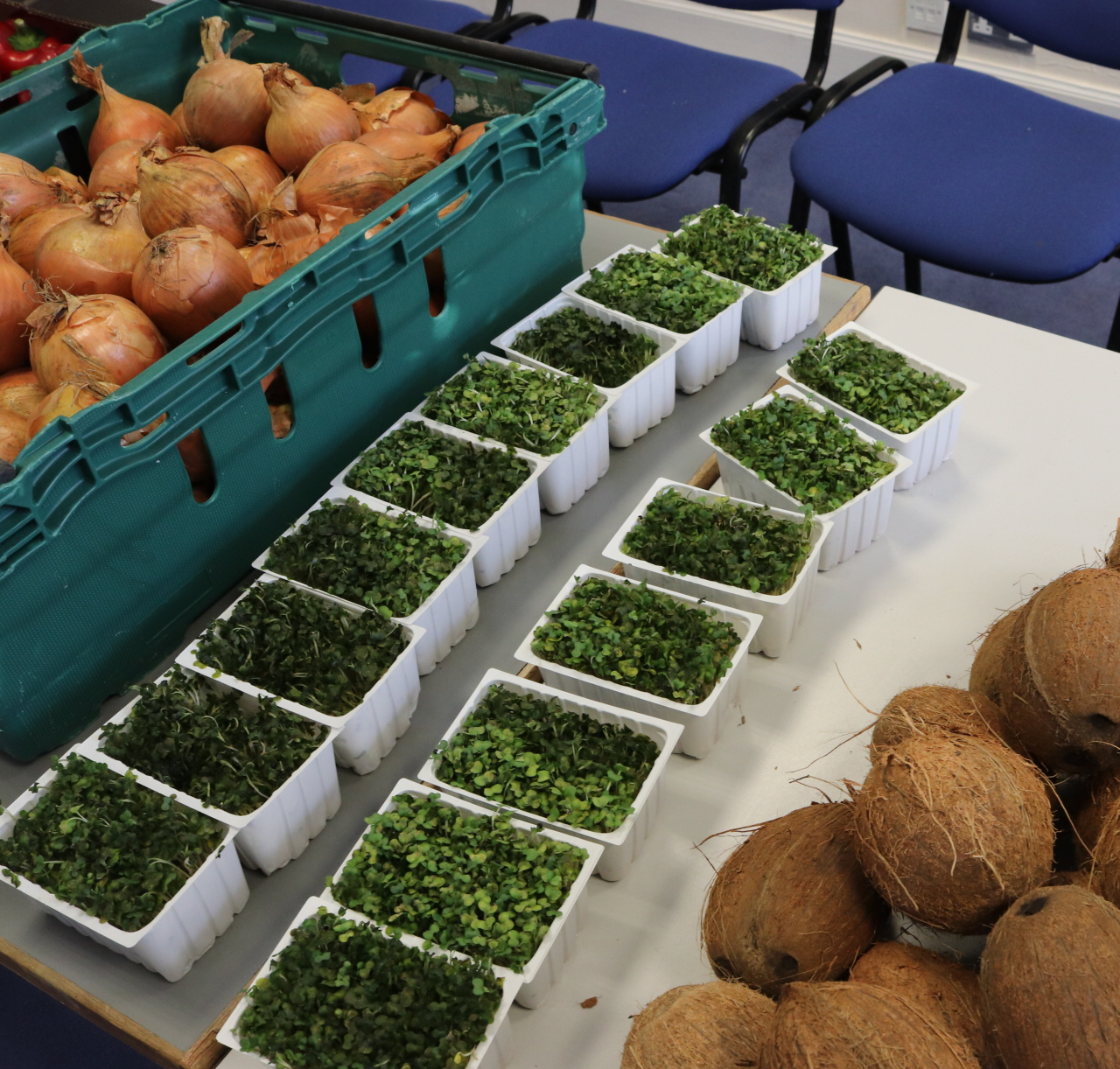Time to take student hunger seriously

As students across Scotland get settled in to university for the first time, Food Education Manager Sue O’Neill-Berest says we need to stop treating student hunger as a joke.
It’s a standing joke most of us are aware of that students live off pot noodles and don’t have a quid to spare by the end of the week. But why are we so quick to laugh off food insecurity and poverty if the people affected are university students?
In Scotland, there’s been a decades-long effort to increase equality of access to higher education - and with reasonable success. In fact, as I write this during Freshers’ Week 2022, over 1 in 5 students starting university this month are coming from disadvantaged backgrounds. People who’ve grown up in poverty are more likely than ever before to get to university.
But our perception of student life is still stuck in the past. A lot of how we treat students is based off the outdated assumption that everyone doing an undergraduate degree must be from a “nice” middle class family – that they have access to financial and social support from mum and dad, someone to turn to for help with life skills, a safety net to fall back on, and all the privileges that come with being raised with extra-curriculars and learning materials.
That just doesn’t reflect reality for an increasing number of students.
We know, and have known for a long time, that food insecurity has a huge and lasting impact on learning. The Scottish Government has, in my opinion, responded really well to this in early years support, with baby boxes, free school meals, and food support for under 18s. But for young people facing the cliff-edge of leaving school and home, there’s a huge hole in terms of preventing hunger.
Even at the maximum allowance, SAAS grants alone don’t provide enough to live on. It needs to be supplemented. Rich and middle-class students may be able to get additional support from their families. But for young people whose families are unwilling or, more often, unable to subsidise their studies, that means working twice as hard – holding down a job alongside full time study.
Working more than 15 hours a week while studying has huge impacts on educational outcomes, and yet it’s necessary for more and more students as the cost of living rises. There’s a huge gulf between the experiences of middle-class students and those from lower-income backgrounds – not only does it impact quality of learning, it can often mean missing out on important social development, networking and ability to build community.
In the face of ongoing food insecurity, poverty, anxiety, and the exhaustion of coupling work and full-time study, how are students expected to focus? To keep up their studies? Finish their degrees successfully?

A pantry by students, for students, at QMU
As a country, we spend a lot of money and effort to help as many people as possible access education because it’s valuable to both individuals and to us as a society. But while it’s great to open the door to more people entering university, what good does it serve to then watch working class people drop out or break down under the strain of student poverty?
We understand the importance of education, and we understand the ways that poverty and food insecurity during education impact life chances. So why are we letting almost a quarter of Scottish students go unsupported?
Part of the problem, in my opinion, is a lack of relevant education in schools. While budgeting and kitchen skills aren’t enough to solve poverty, there’s a huge difference in food security between people who arrive at university with those skills and those without. In a recent study I conducted, I interviewed four Edinburgh students, from Finland, Malaysia, Italy and Hungary. All four had found that coming into university with cooking and budgeting skills had made it possible to live, frugally but adequately, off their grants and still get adequate nutrition and a balanced diet. But all four recalled living with people, primarily Scottish students, who arrived at university unable to make a cup of tea or boil an egg, and whose reliance on takeaway and ready meals made living within their means impossible.
 There’s a huge life skills gap between young people from a middle-class background, who are more likely to have had parents with the time, energy and resources to teach them, more likely to access resources like the existing ‘get ready for uni’ style cook courses run in the city, and have more disposable income to experiment, and young people from more disrupted or disadvantaged backgrounds. Across Scotland, we’re relying on parents to teach these skills, and that only widens the skills gap.
There’s a huge life skills gap between young people from a middle-class background, who are more likely to have had parents with the time, energy and resources to teach them, more likely to access resources like the existing ‘get ready for uni’ style cook courses run in the city, and have more disposable income to experiment, and young people from more disrupted or disadvantaged backgrounds. Across Scotland, we’re relying on parents to teach these skills, and that only widens the skills gap.
Schools may teach food science, but they’re rarely teaching people the skills to cook every day on a shoestring, much less wider life skills like planning, budgeting, paying bills, managing debt and more. In Cyrenians, we’ve run classes for new students at QMU to plug that gap, but we can only reach 7 or 8 students at a time. If we want to see people from disadvantaged backgrounds get the same educational, social and employment opportunities as their more privileged peers, we have to offer accessible, open opportunities to learn life skills throughout the school system, as well as improving support for students past the end of compulsory schooling.
One thing we can do in the meantime to help lower-income students make the most of higher and further education is pantries like the one we run at QMU, which our volunteer Elouise wrote about here. Because they offer affordable access to food, the pantries make food shopping affordable for students who otherwise would struggle to afford food. Being involved in a community-led enterprise like the pantry also helps students take control of the situation, supporting each other and improving mental health and wellbeing.
We can bridge the attainment gap in universities, and help tackle the inequalities faced by lower-income students. But we have to stop laughing at student poverty, and take students seriously as people facing real struggles.
Access food support
Find your nearest Cyrenians pantry
As well as the student pantry at QMU, we have community pantries across the city and beyond - join to access affordable food and be part of our community.
